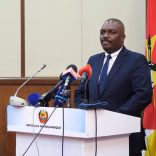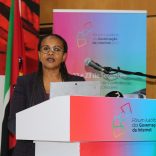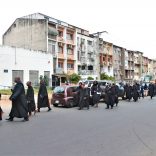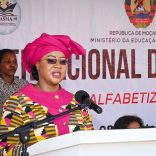Mozambique: Candidates from civil society for “Inclusive Dialogue” to apply by 30 June - AIM | ...
In Seville, Mozambique consolidated alliances and strengthened its voice in the global debate – President Chapo

Photo: Presidency of the Republic of Mozambique
The President of the Republic, Daniel Chapo, declared that Mozambique’s participation in the 4th United Nations Conference on Financing for Development, which concluded this Wednesday in Seville, Spain, was a “great success” by allowing the country to strengthen its position in the global debate on sustainable financing, strengthen ties with strategic partners and mobilize support for structuring development projects.
In assessing the visit, the head of state explained that the Mozambican delegation had a prominent role in the conference’s multilateral debates, where it advocated for a new, more inclusive and equitable global financial architecture. “We reinforce the need for a global financial architecture, a new, more inclusive architecture, with better access to financing and greater equity in opportunities for developing countries,” he said, highlighting the recent approval of the Strategic Development Plan 2025–2044 as a long-term guide for the country.
President Chapo also participated in the roundtable on private financing, where he advocated complementarity between public financing and private sector investment to accelerate the achievement of sustainable development goals. “We are currently working on legislative reforms to create a better business environment in Mozambique,” he said, highlighting the importance of social responsibility and local content in partnerships with investors.
Among the high-level bilateral meetings held by the president were meetings with the President of the World Bank, Ajay Banga; the Deputy Managing Director of the International Monetary Fund (IMF), Nigel Clarke; the President of the African Development Bank (AfDB), Akinwumi Adesina; and the President of the International Fund for Agricultural Development (IFAD), Alvaro Lario, who expressed interest in supporting Mozambique and visiting the country later this year.
The delegation also met President of the European Commission, António Costa, with whom they discussed the main challenges and opportunities for national development.
Another highlight was the meeting with Alain Ebobissé, CEO of Africa50, “a financial arm that helps African countries design, structure and finance projects”, as the head of state explained. This partner is expected to hold a forum in Mozambique, where the country’s main strategic projects will be presented.
Mozambique also participated in the business forum parallel to the conference, addressing topics such as climate finance, solutions led by developing countries and innovative financial mechanisms.
On a bilateral level, the visit to Spain included audiences with King Felipe VI, the President of the Spanish Government, Prime Minister Pedro Sánchez Pérez-Castejón, and with the former Prime Minister José Luis Zapatero, with whom the strengthening of historical relations between the two countries was discussed. It was agreed to hold a Mozambique-Spain Economic Forum this year, with the involvement of the Mozambican private sector and the chambers of commerce of both countries.
The head of state also highlighted the importance of the partnership with the Junta de Andalucia, especially in the tourism sector. Daniel Chapo reaffirmed his intention to reactivate the Andalucia Hotel and Tourism School in Maputo, which in the past trained professionals for the sector.
“We cannot do tourism without qualified human resources,” he said, adding that cooperation also extends to fisheries, with Spanish companies operating in the country.
The Seville conference also promoted Mozambique as an investment destination in the energy and mineral resources sectors. President Chapo highlighted projects such as the second phase of the Cahora Bassa Hydroelectric Plant (HCB), the Temane power plant and the Mocuba and Metoro solar plants, as well as the country’s role as a regional energy supplier.
“We have ports, development corridors and a strategic location,” President Chapo said, calling for the acceleration of reforms to facilitate trade and investment.
At the end of the assessment, President Daniel Chapo stressed that the commitments made in Seville, including the approval of the Seville Commitment will have a direct impact on improving the population’s living conditions. “Our fundamental objective is to create better living conditions for the Mozambican people […], with more schools, more hospitals, more roads, more water, more energy, more medicines, more school books for our children,” the president stated.












Leave a Reply
Be the First to Comment!
You must be logged in to post a comment.
You must be logged in to post a comment.